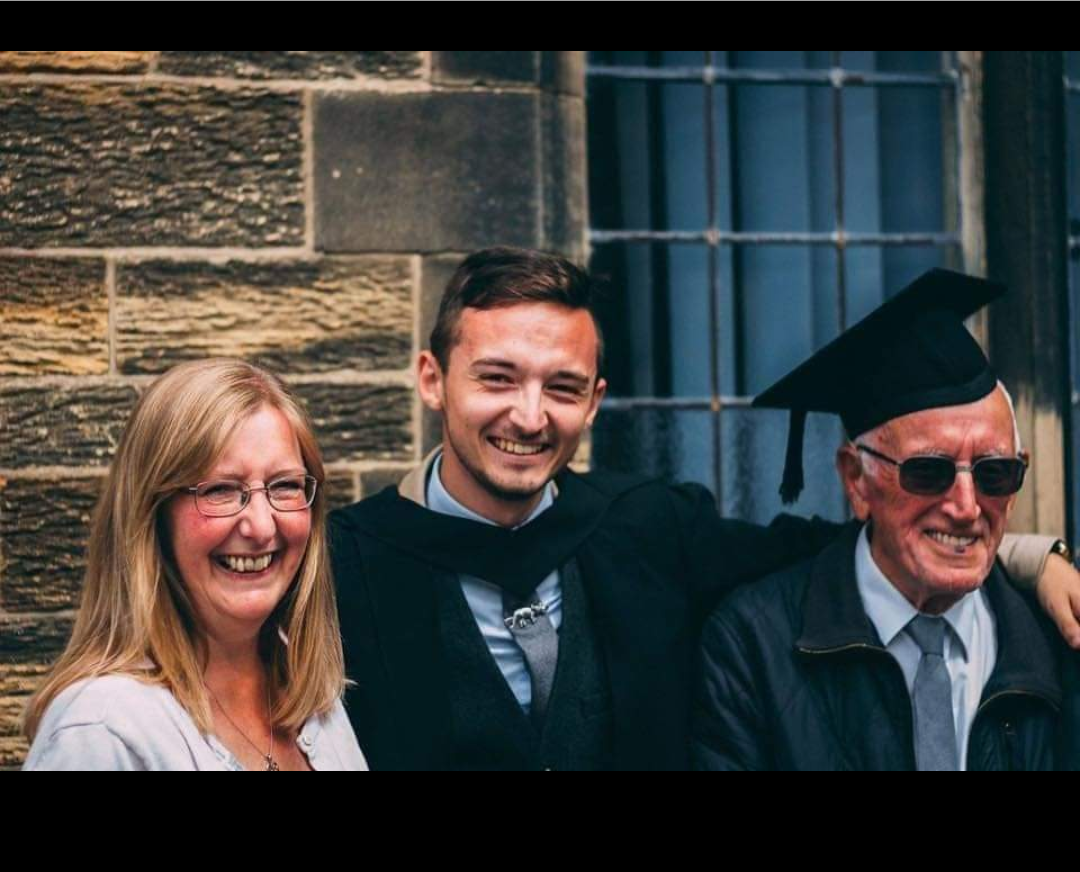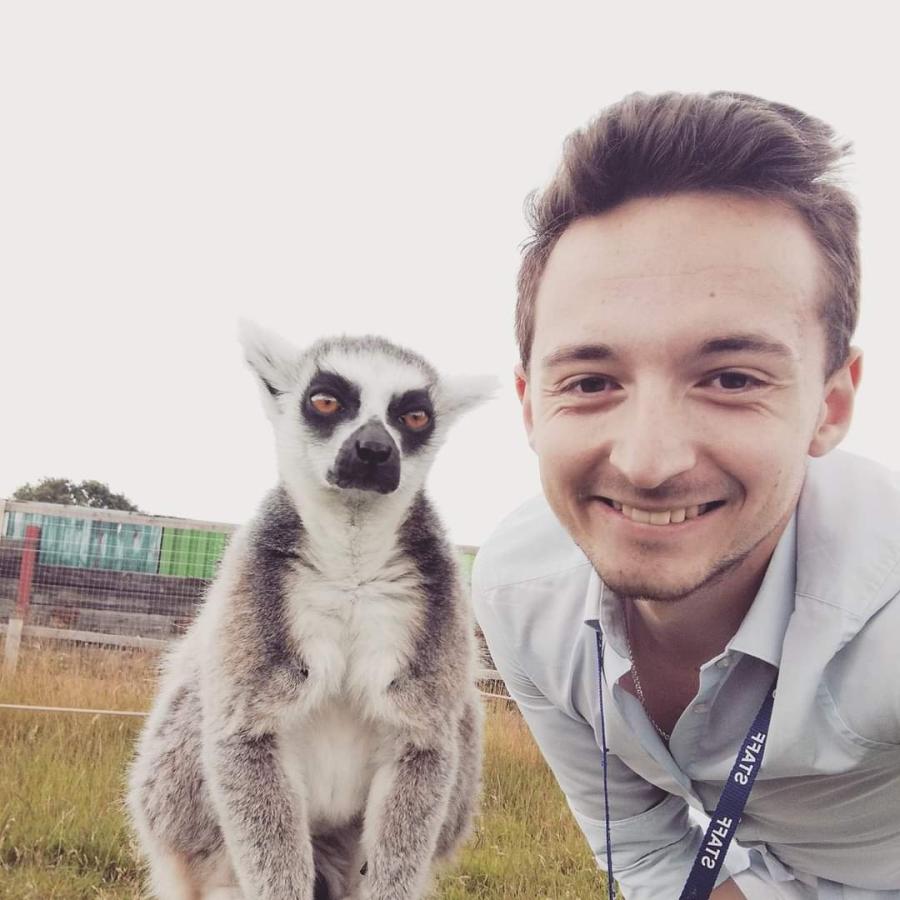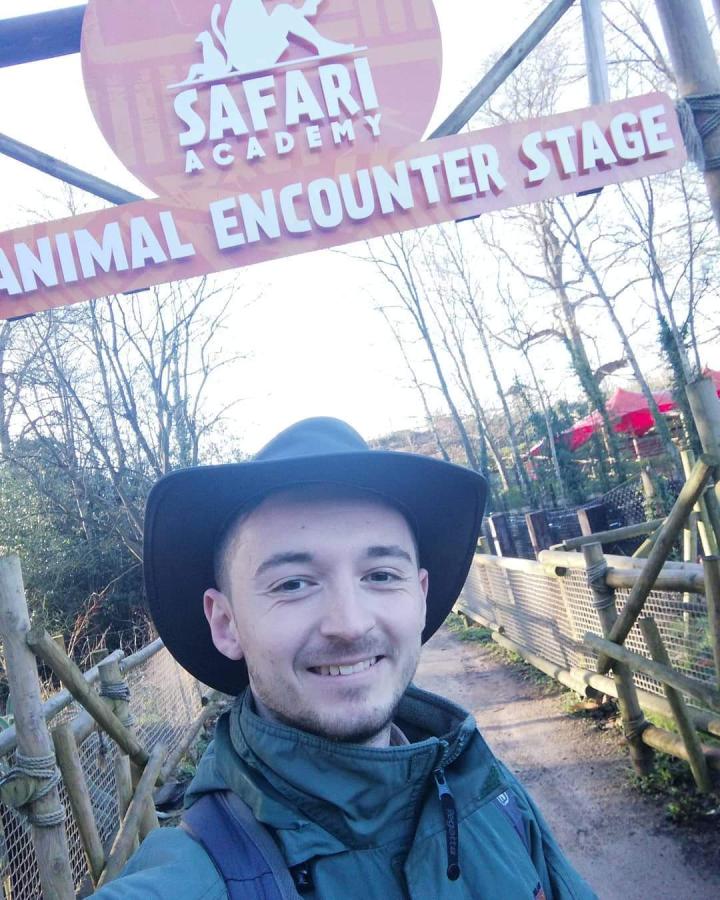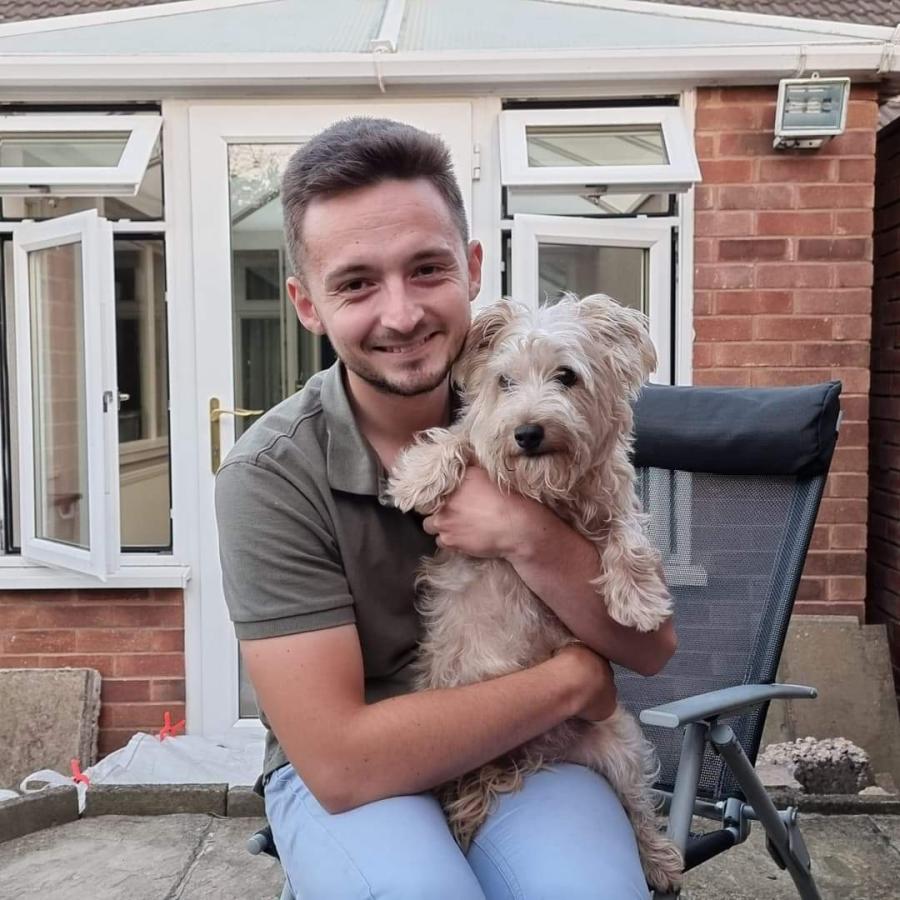
“I’m celebrating 10 years of working with animals after being told by medical experts that a life with animals would not be possible”
“I visited Bangor University on three separate open days, due to falling in love with the natural landscape, the historic university and its facilities like their very own Natural History Museum.
I was Inspired by broadcaster and naturalist, Sir David Attenborough, I'd like to follow in his footsteps by bringing important conservation issues to the attention of future generations. So, it was only natural that I would choose a university to study the biodiversity of life. Bangor University is the home of the biological sciences, and is renowned for its nature-based facilities from its very own natural history Museum to its own research vessel. This was the perfect fit to develop my skills and grow my passion for the natural world.
I had a bit of a different start to this life; I was born with Bilateral Congenital Talipes Equinovarus also known as “Clubfoot”. It’s a common lower limb condition with which 1 in 1000 babies are born. This condition affects your feet and ankles which causes your feet to turn inwards.

Growing up, my grandparents took me a lot to Zoos, trips to nature reserves and holidays to the Jurassic Coast. It was through searching for dinosaur fossils, walking through natural history Museums and seeing what roamed our planet 66 million years ago that inspired me to love the natural world around me.
When I was 13 years of age medical experts suggested that I would be in a wheelchair by the age of 30. I was also advised that a career involving animals would not be possible, meaning my life's ambition to become a zookeeper was squashed. Undeterred by the prognosis, I later enrolled on a Level 3 Extended Diploma in Animal Management at Rodbaston College, Staffordshire, where I was awarded a Distinction*** and gained valuable experience in assisting with setting up the College’s Zoo.
After college, I then applied to undertake a BSc (Hons) in Zoology with Herpetology at Bangor University, during my time, I travelled to Corfu in search of venomous reptiles with the Bangor University Herpetological society, I then visted Tenerife where I took independent research into sleep behaviour in short-finned pilot whales.
In my second year, as part of your course, you have the opportunity to travel abroad, I chose South Africa, we travelled around Kruger national park, where I observed African’s megafaunas such as elephants and rhinos. To this day I still remember going on a bushwalk and a family of elephants walked past us and the sub-adult attempted a dummy charge at us, she then decided to walk away instead, it was incredibly breath-taking.
I fell in love with South Africa so I returned in 2017 to complete a wildlife filmmaking internship with a company called Africa Media, where I learned my one true passion in life how to film wildlife and present to camera about the marvels of our natural world. I was taught by Ryan Johnson a wildlife filmmaking expert who made films for the BBC and national geographic, being taught by an industry expert has allowed me to gain skills and abilities to then create my own documentaries, including my dissertation in which I created a wildlife documentary about the wildlife found at Treborth botanical gardens in North Wales. To my surprise, Steve backshall the BBC wildlife adventurer and now honorary lecturer at Bangor university viewed my film on Twitter and wished me the very best of luck for my future in the industry.

While at university I volunteered in the university’s Natural History Museum for two years identifying, cataloguing and organising the museum collections, this then lead me help out at the university open days, I frequently attended these as an ambassador for the course I was on and for the university. Throughout my time I began doing bus tours around the campus, telling stories of university life to potential students to even doing guided tours of the University facilities. Even when I graduated the University very kindly asked me to do the open day speech after the pro-vice chancellor had spoken, this was a big honour for me to be able to talk to between 200-300 students and their families, from being so shy at school, to standing up and talking to such a large audience was an unforgettable moment.
After graduation with a 2:1, I travelled back to Tenerife as a wildlife camera operator and creative coordinator where I filmed whales and dolphins in the wild for six months and taught volunteers about cetacean conservation and wildlife photography. Due to personal reasons I returned to the UK and worked in restaurants for a short period before I gained a teaching position at Rodbaston college as an animal care lecturer teaching the level 1, 2 and 3 animal care courses.
While working full time at the college, I also gained a position as a minibus safari guide at the West Midlands Safari Park driving there 15-seater minibus around the 4-mile safari, taking guests on a guided tour to see the park's residents such as the crash of rhinos to the pride of lions. After doing this for a while, a position to be an educational officer at the safari park came up, but there were added extras with this particular role, such as doing animal encounters, conducting dinosaur tours and hopping on coach tours and educating schools and college groups about wildlife conservation. I applied and gained the position, after a month or so after starting the covid 19 pandemic shut the country down, this happened to be on my 24th birthday which is the 23rd of March.
As we came out of the pandemic, a new role was available at the park to be their VIP safari guide, where you take guests on tours around the safari park, and you get up close and personal with many wonderful animals such as feeding lions and tigers and even spending the day as a rhino keeper, I've not looked back since.
Lastly, in 2021 I founded the name “Our cities wild islands” which is a documentary idea I thought of which tells of the characteristics of oceanic islands share with manmade roundabouts and how these unused areas of land can become wildlife havens. This then became a project to which we partnered with councils including Wolverhampton city council to begin rewilding park areas, which we hope in the coming years will lead to grass verges and roundabouts, which will create a highway for nature and allow us and wildlife to reconnect once more. I am now celebrating 10 years of working with animals, after being told by medical experts that a life with animals would not be possible to then having a career spanning a decade so far, it's something I'm incredibly proud of.
My main aim in life now is to produce wildlife documentaries that tell of the beauty of our natural world and how we all can make a difference in protecting it. But my main ambition is to front wildlife documentaries as a presenter, but a presenter that has a disability which will bring more opportunities into the wildlife filmmaking industry and make it more inclusive to people with hidden or physical disabilities.

My condition is becoming more difficult and I am unsure what my future will be like, but I have collaborated with a lower-limb charity called steps charity worldwide to create a national campaign to raise awareness of clubfoot so more adults like myself can get more governmental support and more medical care.
To kickstart the campaign I walked the full length of the Jurassic coast, all 95 miles, to highlight the condition. Of the money raised from the event 80% went in aid of STEPS Charity Worldwide, the money will be used to help the Charity continue their amazing work to help people with lower limb conditions. The remaining 20% went to Save the Rhino International, which will be used to help fight and protect the 5 species of rhino that walk the planet.
